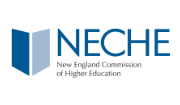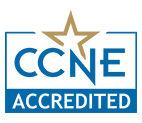
Master of Science in Nursing: Healthcare Systems Leadership
Make a Difference as a Nurse Leader
Today's medical field is facing increased demand for healthcare professionals across specialties and administrative levels. This is reflected by predictions from the U.S. Bureau of Labor Statistics that jobs for medical and health services managers will grow 32%—139,600 jobs—between 2020 and 2030.
Norwich's online Master of Science in Nursing program was designed to meet these critical demands. Our program aims to help you build the essential skills needed to pursue advanced roles in healthcare systems leadership.
To learn more, request information and to apply, please visit
health.norwich.edu
Accreditation & Recognition

Norwich University is accredited by the New England Commission of Higher Education (formerly the Commission on Institutions of Higher Education of the New England Association of Schools and Colleges, Inc.).

The baccalaureate degree program in nursing at Norwich University is accredited by the Commission on Collegiate Nursing Education (https://www.aacnnursing.org/CCNE-Accreditation).
The master's degree program in nursing at Norwich University is accredited by the Commission on Collegiate Nursing Education (https://www.aacnnursing.org/CCNE-Accreditation).
The post-graduate APRN certificate program at Norwich University is accredited by the Commission on Collegiate Nursing Education (https://www.aacnnursing.org/CCNE-Accreditation).
